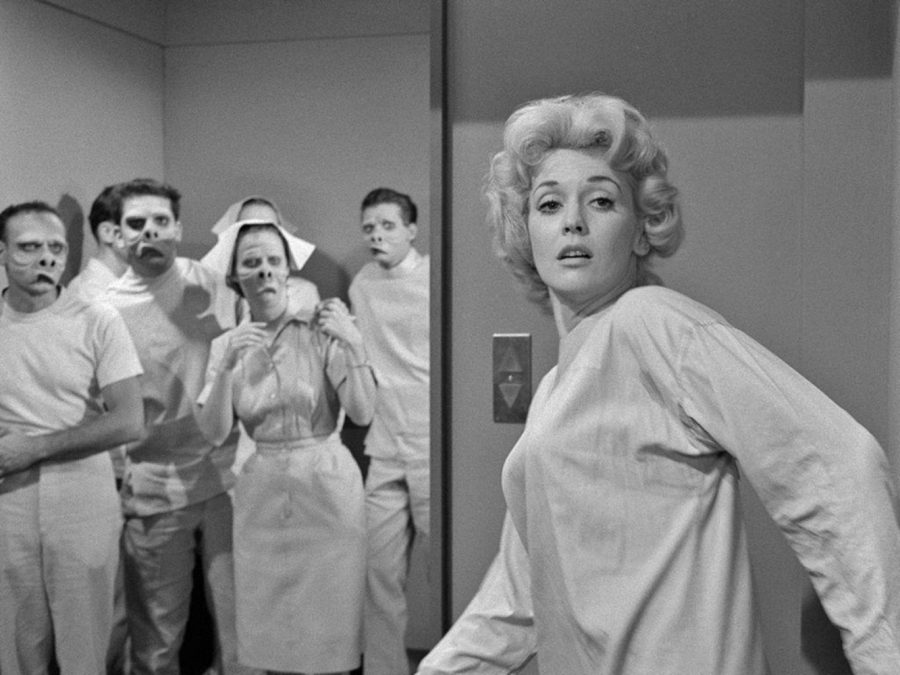UI faculty discuss everlasting legacy of ‘The Twilight Zone’ for its 60th anniversary
University of Iowa faculty discuss the impact of The Twilight Zone in celebration of its 60th anniversary.
A scene from "The Eye of the Beholder."
October 2, 2019
Sixty years ago, sci-fi fans entered the Twilight Zone, and some University of Iowa faculty never left.
Members of the UI community will celebrate the show’s 60th anniversary with a blog post of “The Twilight Zone“ photos by Special Collections, encouraging the community to come view memorabilia of the show in Special Collections at the Main Library. Some UI faculty shared their memories with The Daily Iowan about the show’s iconic moments and show’s innovation and impact.
“We have early CBS television documents that discuss the show and its budget before production began. These are from the Norman Felton Papers and are very rare” said Peter Balestrieri, curator of science fiction and pop culture for Special Collections, in an email to The Daily Iowan. “We have a big run of ‘Twilight Zone’ magazines with articles and stories unavailable anywhere else.”
Joy Hayes, a UI associate professor whose work interests include broadcast history, said Rod Serling, the creative mind behind the series, faced many roadblocks when trying to bring social topics into TV.
“He wanted to write a play about the murder of Emmet Till in 1955 but ended up producing a completely watered-down [version] due to corporate censorship,” Hayes said in an email to The Daily Iowan. “He gained fame writing ‘teleplays’ for early TV shows that we now call ‘anthology dramas,’ because they aired different original dramas or adaptations every week.”
UI lecturer Pat Dolan, who teaches a social-justice course centering on the speculative fiction by women, said the show brought in slight inclusion of female creativity.
“I loved ‘Twilight Zone,’ because it spoke to two of my great loves when I was young: bookishness and science,” Dolan said. “I notice that Ida Lupino, one of the rare women who directed movies and TV at the time, directed an episode in the last season.”
The faculty members had particular episodes that struck a chord with them.
For Balestrieri, picking a favorite episode was like Sophie’s Choice.
“There are too many for me to have a favorite,” he said. “I like all the comedy episodes, the lighthearted ones. ‘One for the Angels’ is touching and has some great acting from Ed Wynn.”
Dolan said his favorite episode was “Time Enough at Last,” because it terrified him.
The episode revolves around a man who is annoyed by everyone for preventing him from readin more books, only for the doomsday to emerge and his wish to be with books comes true – until the classic Serling twist ending.
“I wore thick glasses until I got contacts,” said Dolan about the episode’s impact. “The moment the glasses crunch sent a bolt of fear through me.”.
For Hayes, she said the images of “Eye of the Beholder” made her skin crawl.
“One that made a big impression on me at the time was the female patient with the ‘horribly disfigured face’ who was undergoing surgery to make her look ‘normal,’ ” she said. “We don’t see her face or those of the doctors and nurses until the very end, when the surgery ‘fails’ to fix her. When we see her, she is a ‘beautiful’ young woman, and the doctors and nurses (who are horrified to look at her) have the faces of pigs with protruding snouts. I liked the way it turned viewers’ expectations upside down.”














